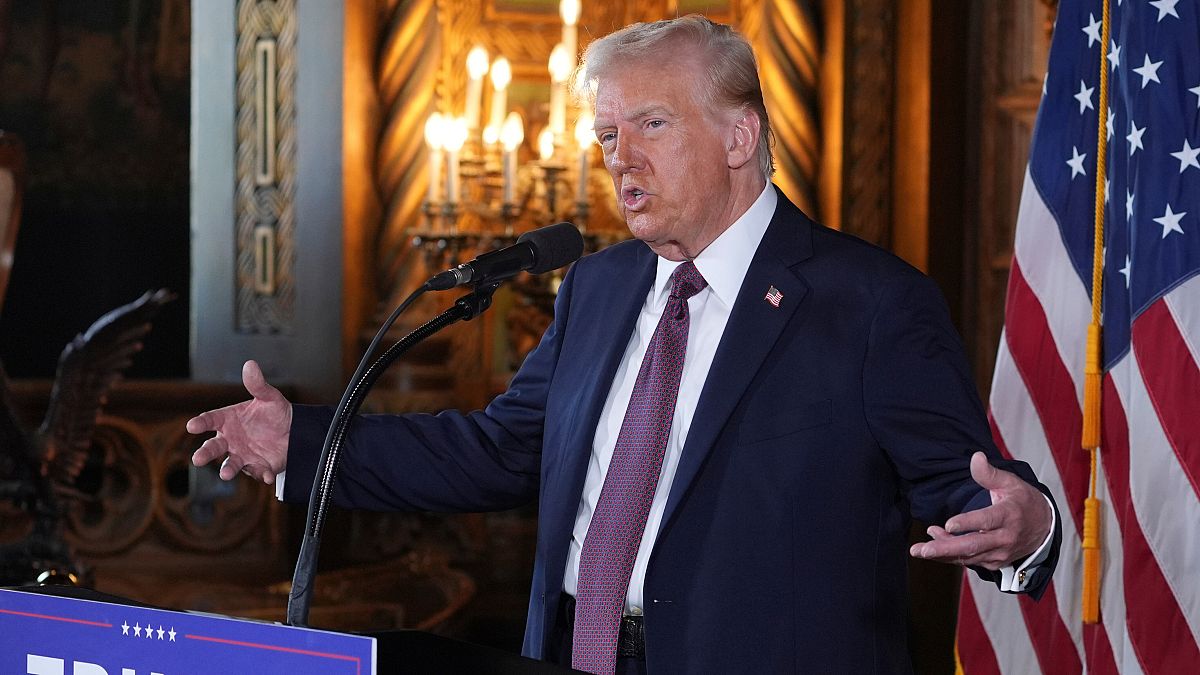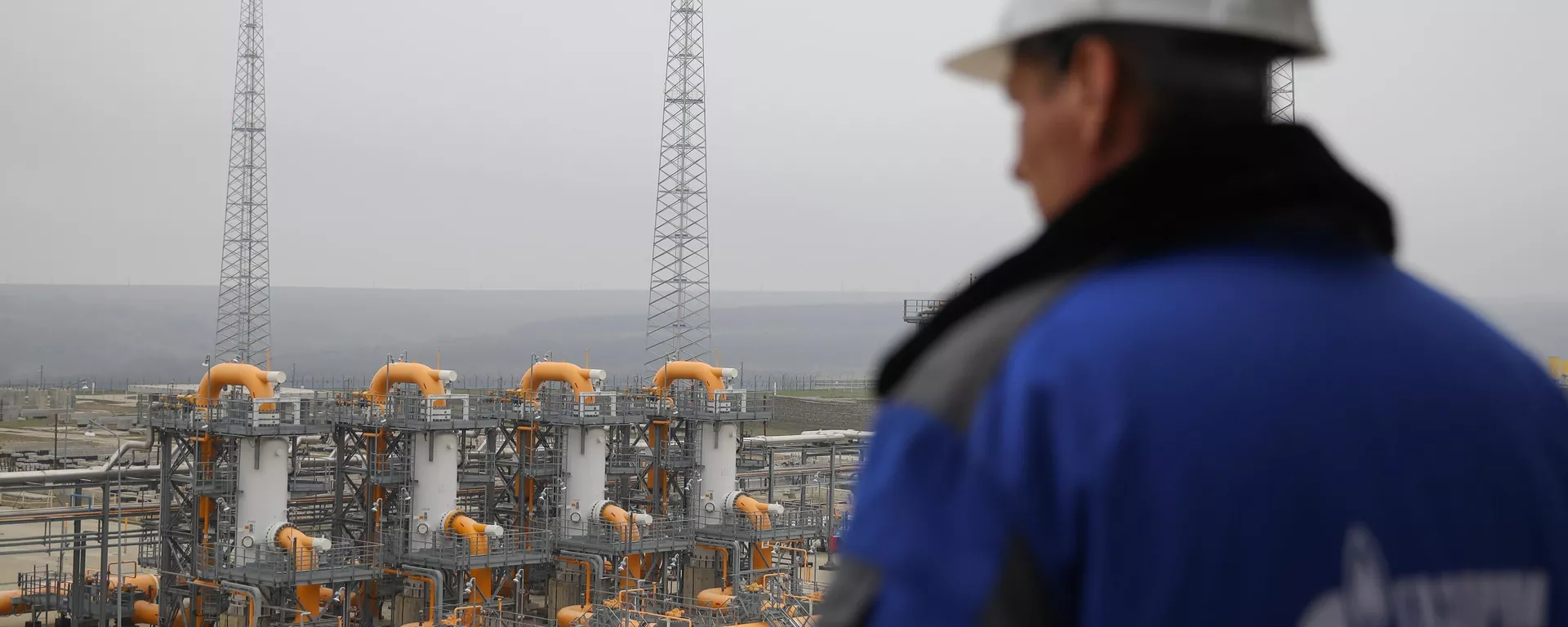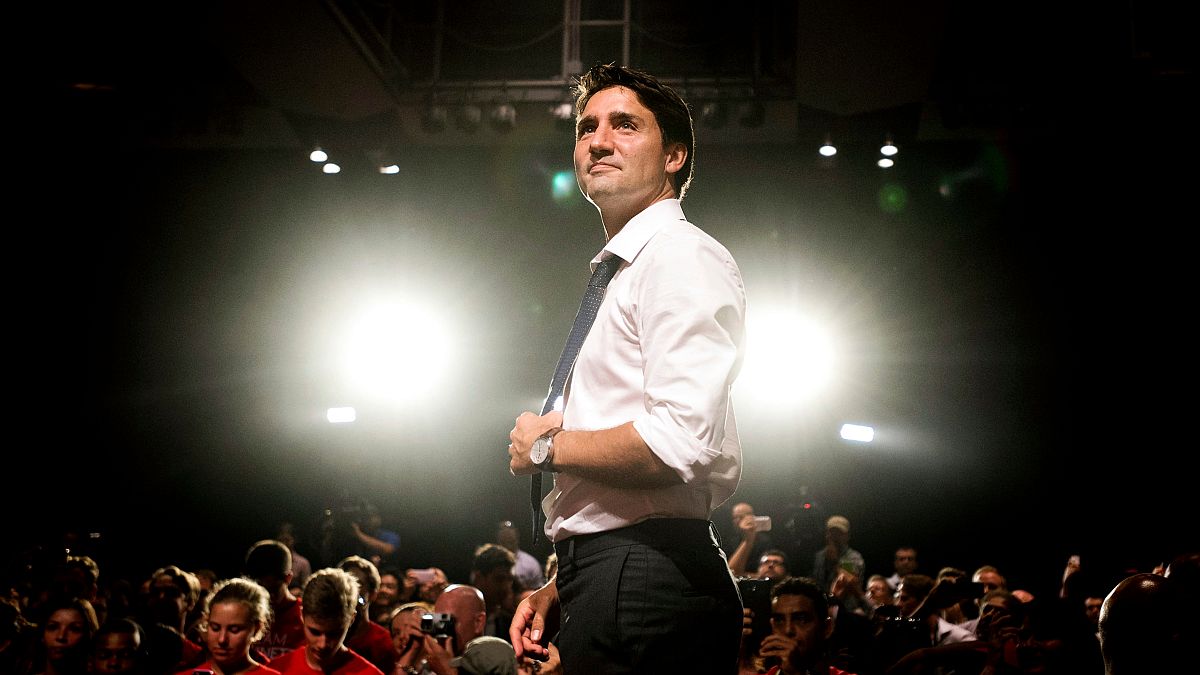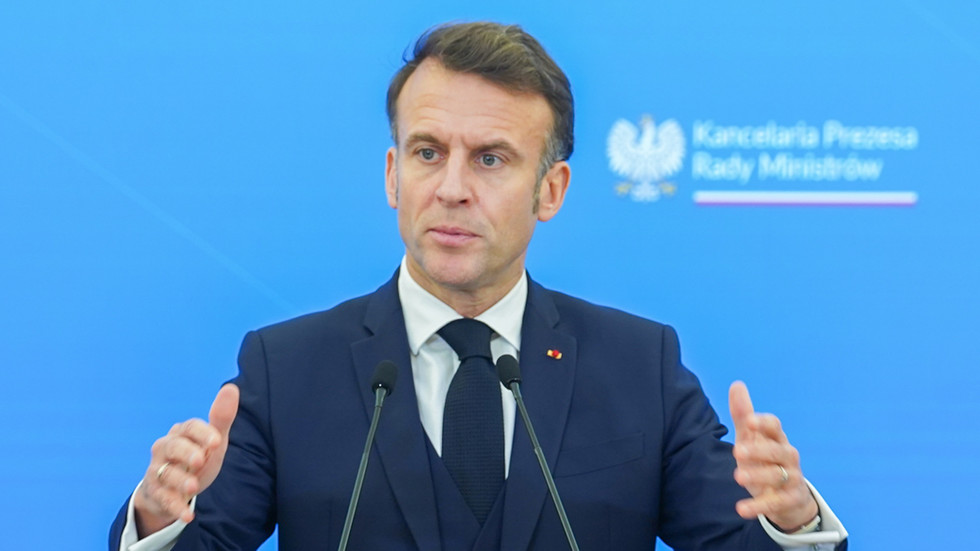As rebels seize control in Syria after more than a decade of war, the future is uncertain. Key concerns include al-Assad's allies, regional dynamics, and potential for further conflict.
In light of the dramatic scenes in Syria and the acceleration of events over the course of a handful of days, it seems that the Middle Eastern country is about to enter an ambiguous phase, opening a myriad of possibilities.
Just looking at the map of the country, the region and even beyond, there are several question marks that may not be answered soon.
Who will rule the country? What about the ousted Bashar al-Assad regime's allies in Tehran, Beirut and Moscow? What about his bitter enemies, and what fate awaits Syria after al-Assad?
Syria's soft underbelly, Lebanon, is preoccupied with its internal problems, the devastating Israeli war that claimed the lives of nearly 4,000 people.
Al-Assad's former ally Hezbollah is exhausted by the war it fought against Tel Aviv, which ended with the announcement of a fragile 60-day ceasefire that witnessed daily violations from the Israeli side that have so far resulted in destruction, deaths and injuries even among the Lebanese army, which is supposed to oversee the implementation of the ceasefire.
With the change in the political scene in Damascus, the supply line from Iran to Hezbollah through Syria will be cut off or, at best, not be easy.
Syria will no longer be the backyard of Hezbollah, which was crucial to al-Assad's restoration of control in his war against armed opposition groups after it intervened in the conflict in 2013 under the pretext of protecting Lebanese territory from attacks by these groups, as well as protecting the shrine of Sayyida Zainab in the outskirts of Damascus, which has a special status among Shiite Muslims and which, if compromised, would have caused further sectarian tension and rivalry between Sunnis and Shiites.
Turkey and Israel to profit?
Turkey has tried to distance itself from the spectacular advances of armed groups in recent days and has emphasised that it is not involved in the operation.
This is despite the support it has given to the opposition since the beginning of the uprising against al-Assad's rule, opening its borders to displaced Syrians at the time.
Ankara has also hosted opposition figures and provided support for the Syrian National Army. Yet, a solution to the dilemma of the estimated three million Syrian refugees in Turkey if security is restored in Syria and the country avoids entering a new cycle of chaos is still unclear.
Meanwhile, there's also Israel. The neighbouring country occupied the contested Golan Heights region of Syria for more than 57 years before announcing its annexation. Washington recognised this annexation under the previous Trump administration despite clear international resolutions that consider the Golan Heights to be occupied territory.
Two days ago, Israel mobilised its air and ground forces in the Golan Heights in anticipation of any emergency and has since seized control of the entire territory.
Israel is likely to closely monitor what is happening in Syria, especially if a regime that emerges is inward-looking and preoccupied with its internal problems and does not claim its right to the Golan Heights or reach the shores of Lake Tiberias.
Iran, the biggest loser
As for Iran, it has lost an important and vital ally in the region.
The history of relations between the two countries goes back many decades before Bashar al-Assad even came to power.
Interests converged between an Islamist regime that emerged from the Khomeini-led revolution that toppled the shah in 1979 and a secular nationalist regime led by the Ba'ath Party headed by Bashar al-Assad's father, Hafez.
At the time, Hafez al-Assad supported Tehran in its war against Iraq in the 1980s. The two sides were united in their hostility to the regime of Iraqi President Saddam Hussein and their rivalry with Washington, which was providing military support to Iraq in its eight-year war against Iran in the 1980s.
There is also the role Quds Force commander General Qassem Soleimani — who was killed by a US raid in Baghdad in early 2020 — played in preventing the fall of the regime and managing the military operations in Aleppo in 2015, where he personally led the battle to break the siege on Syria's largest city and the country's economic capital, and was then called by the opposition the Butcher of Aleppo.
By losing its ally in Damascus, Tehran is the biggest loser in the region. However, it seems to be taking a cautious stance on recent developments, reflected in timid and measured statements on the situation in Syria.
It is also preoccupied with other challenges and files, namely the deepening hostility between it and Israel and the US, which stands on the threshold of a new administration led by Republican President-elect Donald Trump. With the nuclear file still unresolved and buckling under US and international sanctions, the Tehran regime is apprehensive about the next stage.
This has been further made visible by Trump's nomination of veteran diplomat Brian Hook, known for his hard-line positions towards Iran since President George W Bush's era, to be the special envoy in charge of the country file.
What will Moscow do?
Famously, Moscow remains one of the most important stakeholders in what is happening in Syria.
The departure of al-Assad could be a major blow to the Kremlin, which has military sites in Syria. The most important of these are the Hmeimim Air Base, located southeast of the city of Latakia, and the Tartus naval base.
These two sites gave Russia access to the Mediterranean waters from its eastern bank, serving its interests in the region and Africa as well.
Vladimir Putin's Russia has provided significant military support to the regime since 2015, with some 4,000 troops on the ground. This support, under the banner of fighting the so-called IS and extremist groups, has been crucial in maintaining al-Assad's rule.
The fall of the regime would mean that Moscow would no longer have a foothold in Syria, given the deep-seated hostility of armed groups. Geostrategically, it would be a blow to Putin, who has been fighting a war in Ukraine for nearly three years.
These developments may be a factor in resolving the war in Ukraine and further influence the conflict between NATO and Western countries on the one hand and Russia on the other.
Fears of a Libyan or Afghan model
Now that armed groups led by Hayat Tahrir al-Sham — formerly Jabhat al-Nusra — have taken control of the government in Syria, and with the different ideological agendas of these groups and the association of some of them with regional and international powers, the situation remains hazy, if not bleak.
No one can say with certainty that the country will not be divided and a democratic transition of power will not take place or whether Syria can avoid a fate similar to that of Libya since its uprising against the Muammar al-Gaddafi regime on 17 February 2011.
The North African country has been divided for years between an internationally recognised government based in Tripoli in the west and a government in the east led by Libya's strongman, Field Marshal Khalifa Haftar, further contributing to regional and international polarisation.
So far, all attempts have failed to heal the rift between the two sides and put an end to the rivalry that has resulted in hundreds of deaths and the imposition of two governments, two central banks, armed forces and militias, dilapidated infrastructure and a collapsed economy despite the country's vast oil wealth.
Another fear is the repeat of the Afghanistan scenario, where the Taliban surprisingly took complete control on 15 August 2021, and the imposition of a hardline Islamist regime there following the withdrawal of the US and other international forces.
What if Hayat Tahrir al-Sham, which spearheaded the overthrow of the al-Assad regime, takes control of the levers of government in a multi-confessional and multi-ethnic country populated by Kurds, Alawites, Druze, Shiites and Sunnis?
This is in addition to the Christians who form an integral part of Syria's demographic fabric, as their ancestors were the first to embrace this religion and follow Jesus' teachings.
The short answer is, it's too early to tell.
As the rebels form their first provisional government free of the al-Assad family in more than five decades and a peaceful transfer of power takes place in which the country, the country now faces an immeasurably difficult task of healing the wounds of the civil war and turning the page on totalitarian rule.

 4 weeks ago
9
4 weeks ago
9






 We deliver critical software at unparalleled value and speed to help your business thrive
We deliver critical software at unparalleled value and speed to help your business thrive






 English (US) ·
English (US) ·